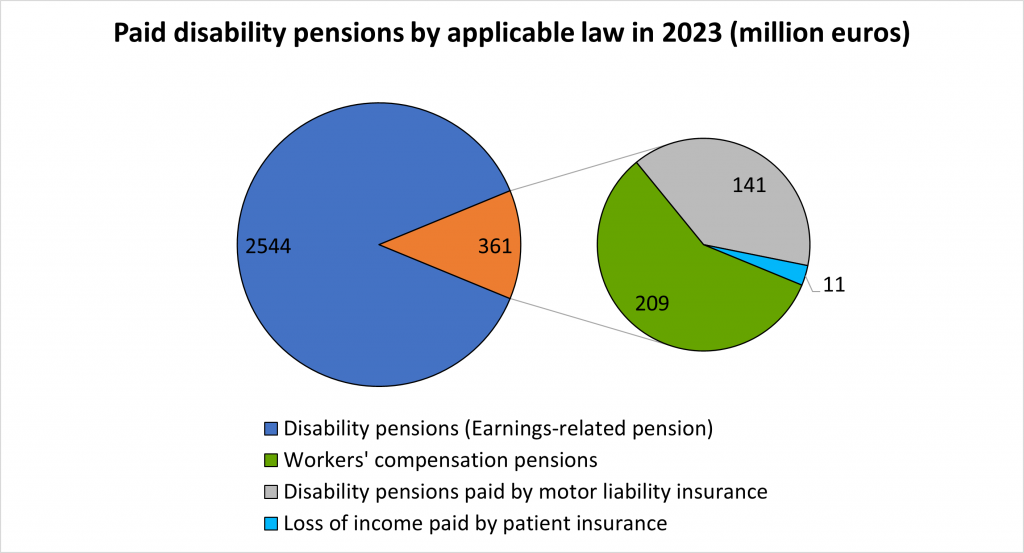Benefits under the Workers’ Compensation Act and the Motor Liability Insurance Act
Indemnity for loss of income under the Workers’ Compensation Act and the Motor Liability Insurance Act (LITA compensation) take precedence over earnings-related pensions. If the insured receives such compensation, the amount is deducted from the earnings-related or national pension paid to the insured. Since LITA compensation is based on loss of earnings, that compensation is often higher than pensions under the earnings-related pension system. That is why, in most cases, there is no earnings-related or national pension left to be paid to the insured in addition to the LITA compensation.
LITA compensation is based on loss of earnings
Although all LITA compensation is based on loss of earnings, the rules are different from one act to another. Under the Motor Liability Insurance Act, the compensation is always based directly on loss of earnings. The aim is to compensate the loss of earnings in full, and the compensation is calculated based on the lost potential earnings. The insurance company aims to calculate how much earnings the injured person would have received had the injury not occurred. For longer periods of disability, possible career development is also taken into account.
As for the Workers’ Compensation Act, the compensation is calculated more formulaically from past earnings by looking at the earnings of previous years and forming so-called annual earnings. The amount of the compensation is based either on the person’s earnings in the previous year or the average earnings of the past three years. The aim is to find the person’s established earnings level. If the compensation continues for more than one year (and turns into a pension), it drops to 85 per cent of the imputed annual earnings.
LITA compensation usually paid as of one year of the incident
As a rule, LITA compensation is paid as of one year of the incident. The compensation can also be paid for a fixed period of time. Compensation paid under the Workers’ Compensation Act differs from that paid under the Motor Liability Insurance Act in that the compensation for loss of earnings does not automatically convert into a pension after a certain period of time. Under the Motor Liability Insurance Act, the compensation becomes a pension only after the disability has been confirmed, and the pensions paid must be separately approved by the Traffic Accident and Patient Injury Board.
Compensation relating to patient injuries
Patient injuries are compensated under the Patient Insurance Act. If the earnings-related pension system is paying out disability pension as a result of a patient injury, the payer of the patient injury compensation will pay the costs of the pension to the earnings-related pension system until the person reaches their retirement age for the old-age pension. Between 2017-2020, compensation paid under the Patient Insurance Act took precedence over the earnings-related pension, as with other LITA compensation.
Annual amounts of compensation
Compensation under LITA insurance is paid out to the amount of around 361 million euros each year. In 2023, compensation paid under the Workers’ Compensation Act amounted to around 209 million euros and under the Motor Liability Insurance Act to around 141 million euros. Disability pensions under the Employees Pensions Act were paid to the amount of around 2.5 billion euros in 2023.

More on other sites: